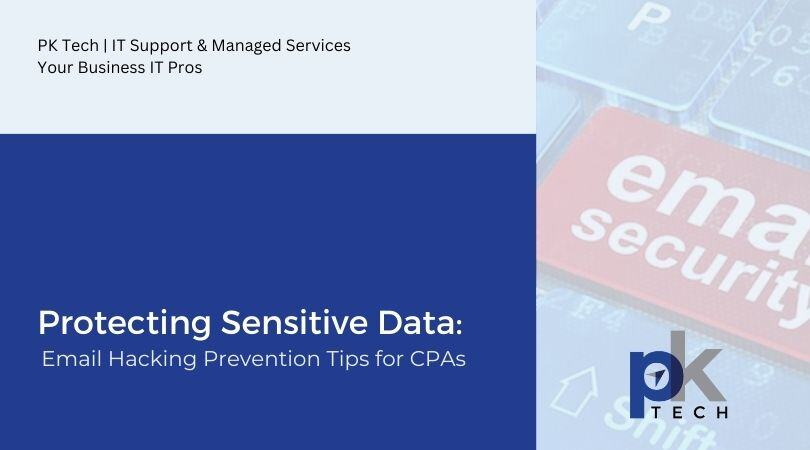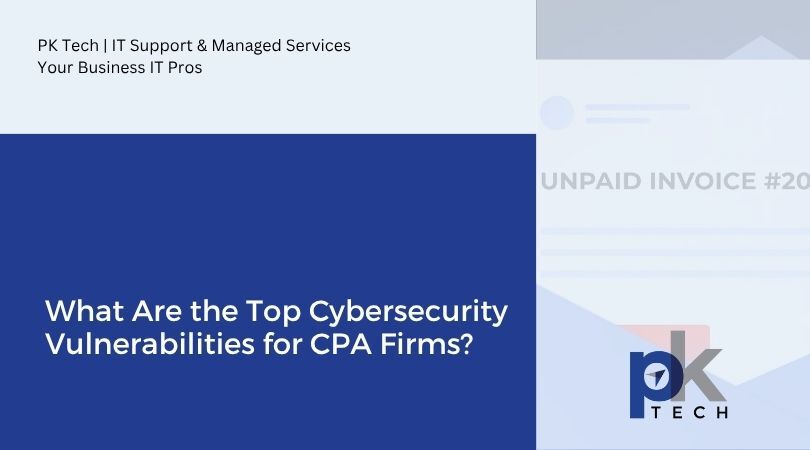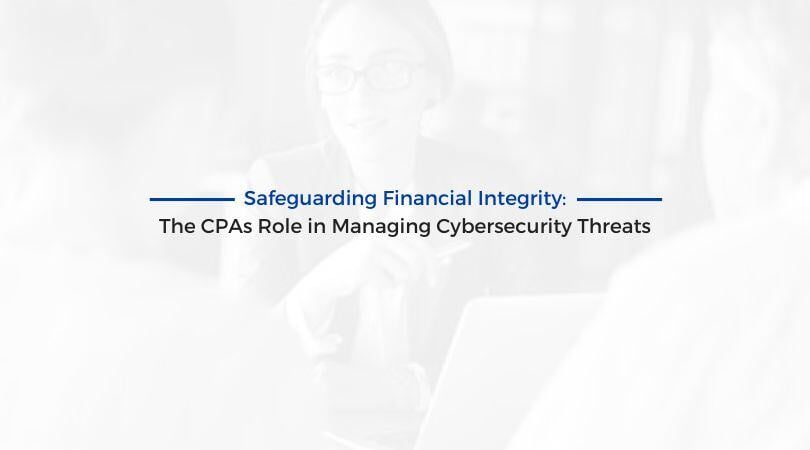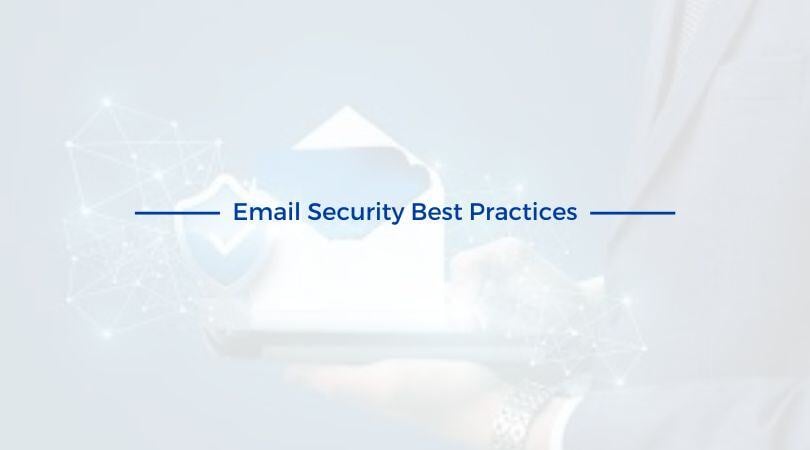What Are the Top Cybersecurity Vulnerabilities for CPA Firms?
Trust is currency in today’s world. The name of the game for cybercriminals is exploiting that trust for financial gain.
2 min read
PK Tech : Updated on December 20, 2024

Imagine a world without email. We’ll wait.
Email is a necessary evil for all organizations. Whether your firm thrives on email or despises it, it is a reality of operating in the modern corporate world.
With the convenience and prevalence of email use across organizations comes inherent risks. For CPAs, the risks have high stakes. With sensitive personal and financial information flowing regularly through CPA firms, locking down email use for maximum security is vital.
The good news? We’ve got your back. This guide will provide context for email hacking risks and top tips for CPAs to prevent email hacking.
Let’s dive in.
Like its name, email hacking refers to cyber criminals using email to gain unauthorized access to your data. But there’s more to it than that. How does it happen? What are they after? Why do hackers often specifically target CPA firms when it comes to compromising email accounts?
As a CPA firm, you are the keepers of significant sensitive information. Many times, information is purposely or inadvertently shared via email. Email hackers prey on employees, making what is sometimes just a one-time, simple mistake. Your mistake, their gain.
In email hacking, hackers gain unauthorized access to an email account or its correspondence and use the access for several possible malicious purposes, including:
Keeping email hackers out of sensitive systems follows similar strategies to keeping hackers out of anything. Whether ransomware, email hacking, or phishing, keeping your information safe requires strategy and consistency. If you are a CPA, follow these ten tips to help prevent email hacking within your firm.
All of PK Tech’s plans include all the above.
While email is, in fact, just one way that hackers infiltrate organizations – it’s a big one. In a comprehensive and proactive cybersecurity strategy, it’s always wise to focus on the most significant and most common points of entry. Email is undoubtedly one of them.
With a long history of working with CPA firms in the Greater Phoenix Area, we understand what it takes to protect a CPA firm. Email accounts present a vulnerability for all firms that must be addressed at the employee level.
Is your firm ready to fortify your email accounts to prevent email hacking? Let’s chat. Schedule a free 15-minute call with a member of our team.
New: Did you know all CPA firms are subject to the FTC Safeguard rule? Check out dedicated page for this, along with our FTC Safeguard Readiness Quiz.

Trust is currency in today’s world. The name of the game for cybercriminals is exploiting that trust for financial gain.

For the professionals whose lives revolve around April 15th, there is a world of risk and opportunity. The landscape of financial management–with...

In the digital age we live in, email has become an indispensable tool for personal and professional communication. However, with the convenience of...